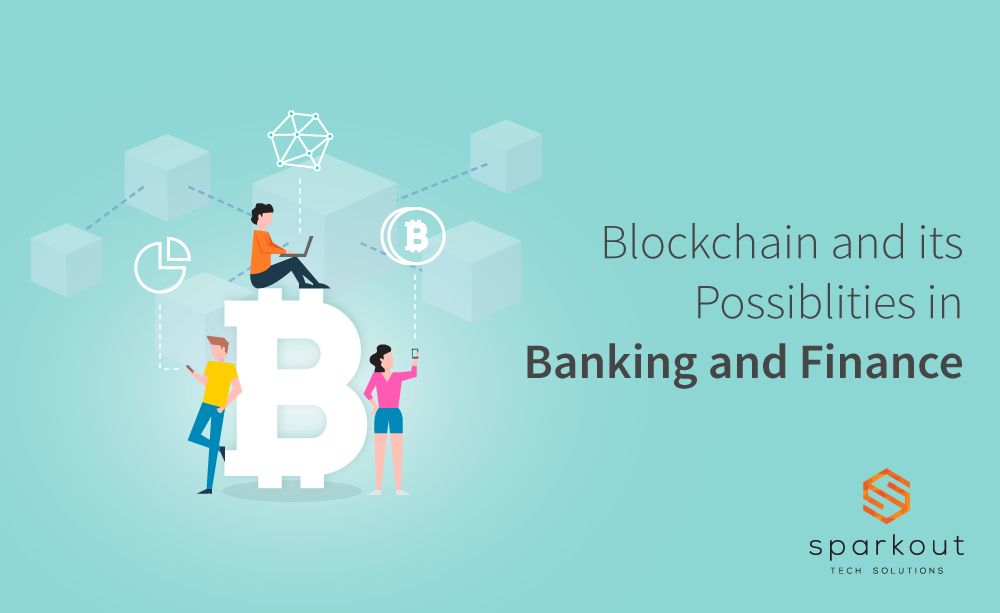
Blockchain, as most of the people know, is the driving technology behind cryptocurrencies or the more popular Bitcoin. But, as a technology, Blockchain is much more than that. It is an idea into execution that can shape the socio-economic structure of our future. And it is technologically powerful enough to change the world of banking and finance, as we know it today. Even though it is a long road until we see a complete shift in the current paradigm, we can see things and the process of banking moving towards it.
But how will the current construct evolve into something more robust and a system that has actually moved towards digital structure?
In its core sense, blockchain is a database about transaction details. In its utilization in the field of cryptocurrency, blockchain makes way for trust between trading parties and ensures that the transaction has been made. Also Known as a ‘Public Ledger‘, each blockchain contains data about the when and how each transaction took place. These ledgers are publicly accessible but un-editable due to its cryptography. One can only make changes in the parts of the data log that they own, by the private key to that file.

The Potential Impact on Financial system
Reduction in Financial Crimes:
The foremost thing blockchain would accomplish in the banking world will be the curbing of financial frauds that the financial intermediate bodies suffer every year. The problem with most banking systems is that they have, a centralized database which is more prone to cyber-attacks but blockchains are not centralized, rather they have many copies distributed to the owners with their editable file. So, in case of an attack, all the copies would have to tweaked, which again is touted impossible.
This way, the integration of blockchain to keep the decentralized database, can help in reducing a number of financial crimes that we witness today.
 Cost Reduction in terms of Know Your Customer- Each year financial bodies around the world spend between $60 million to $500 million on KYC and customer regulation. These expenditures are done to reduce money laundering and terrorism funding by identifying and verifying the customer. With blockchain, a single identification system could be developed by one organization, which can be accessed by other organizations to avoid the verification process all over again. And because of the cryptography of the files, the tampering of information could become really hard.
Cost Reduction in terms of Know Your Customer- Each year financial bodies around the world spend between $60 million to $500 million on KYC and customer regulation. These expenditures are done to reduce money laundering and terrorism funding by identifying and verifying the customer. With blockchain, a single identification system could be developed by one organization, which can be accessed by other organizations to avoid the verification process all over again. And because of the cryptography of the files, the tampering of information could become really hard.
Payments, Transfer and Processing:
With integrating blockchain in banking payments and transfers, the process would become very smooth and fast, due to the elimination of all the intermediaries in the payment process right now. What blockchain enables, is the peer-to-peer connection through a single file to ensure the transaction. This way, the time and the cost incurred during the processing would come down significantly.
Also, the system of keeping records and contracts in today’s banking world relies heavily on paper. Even though we claim to be the world that is digitizing its labour process, the banking sector is more of a pseudo digital industry. Blockchain would help in bringing down these accounting and paper costs drastically while making the excruciatingly slow formalities a thing of the past.
But as we discuss all the massive and positive possibilities of blockchain, there is a hurdle that needs to be passed. The matter of regulation and acceptance through all the major governing bodies is a must, for blockchain to become a driving technology for the banking and financial world. The underlying idea for the development of blockchain was to break free from regulations and middlemen, but that cannot work in a system that we are concerned with here. A lot of companies are working with regulatory bodies to develop tools and technology that are in sync with regulations and many of these propositions are being applied in trading institutions and other financial bodies.

